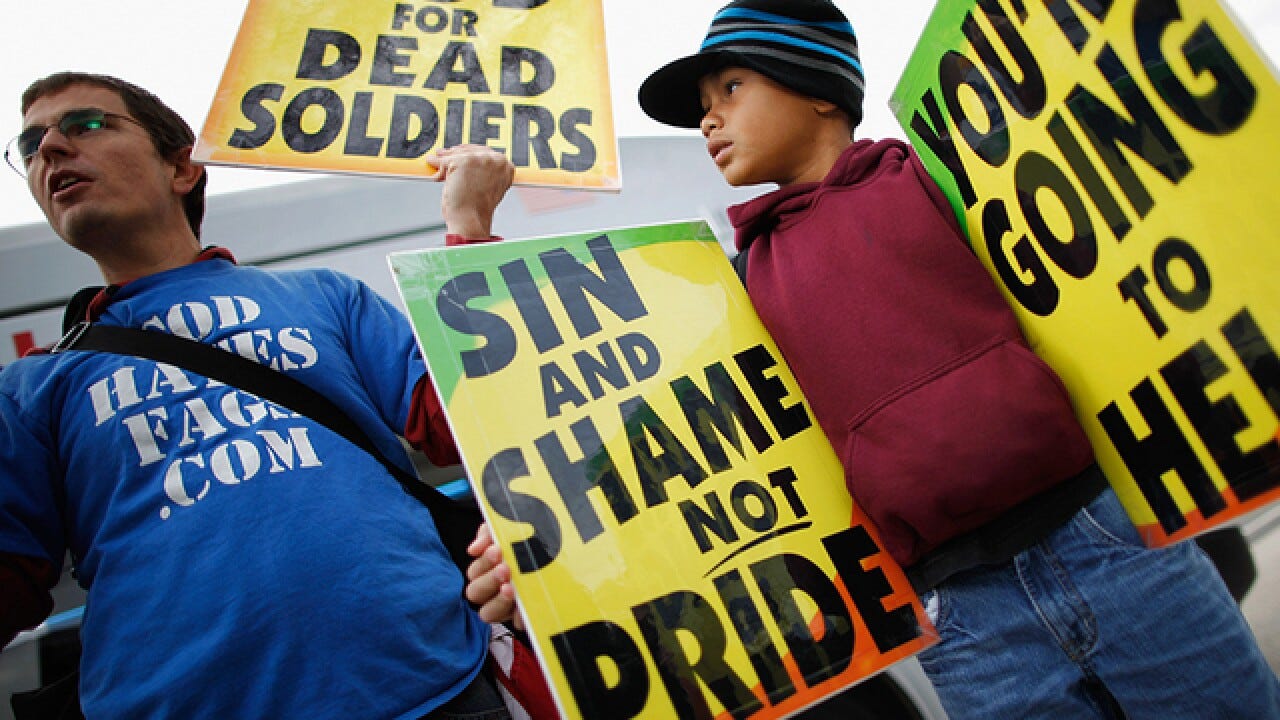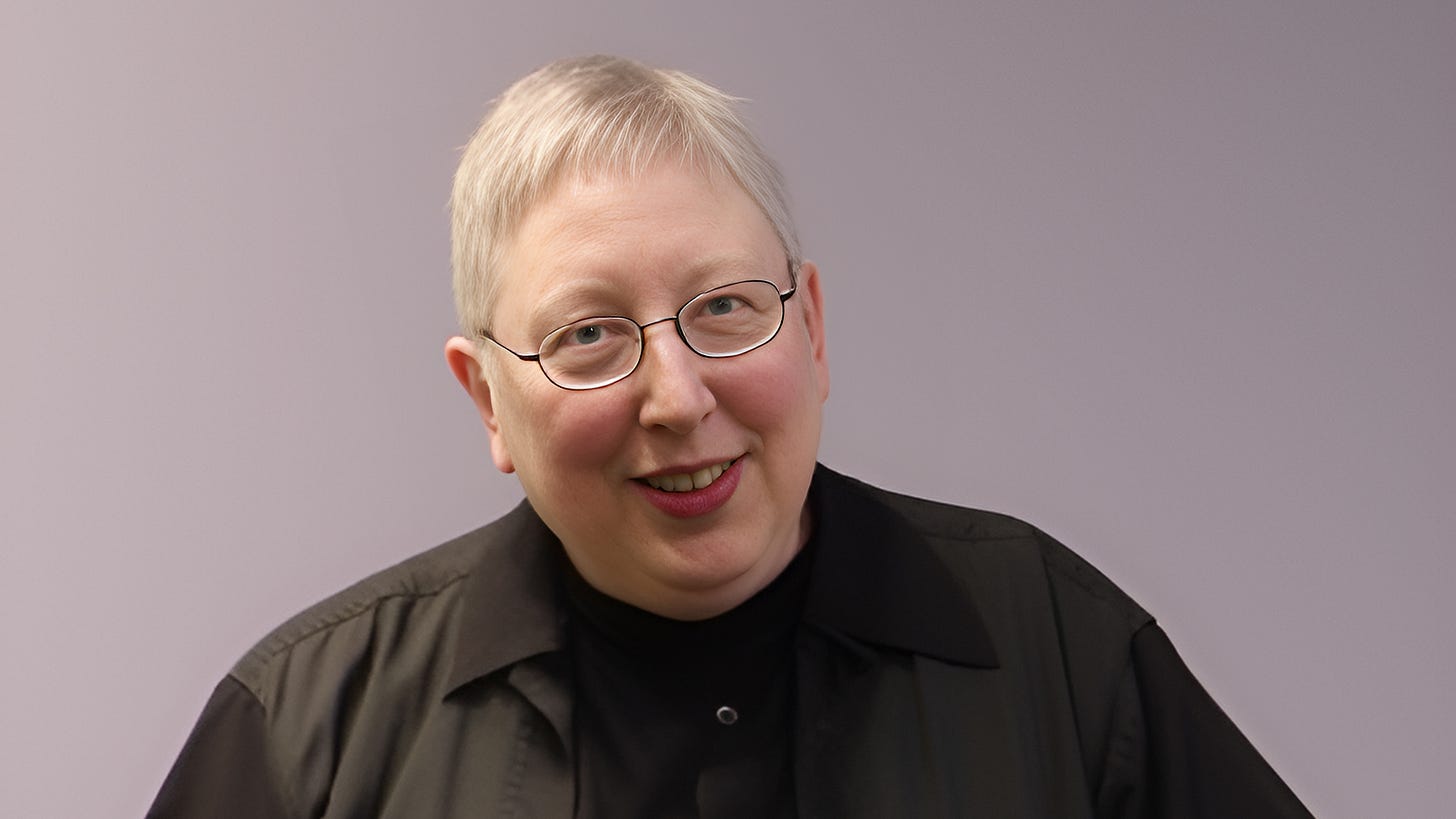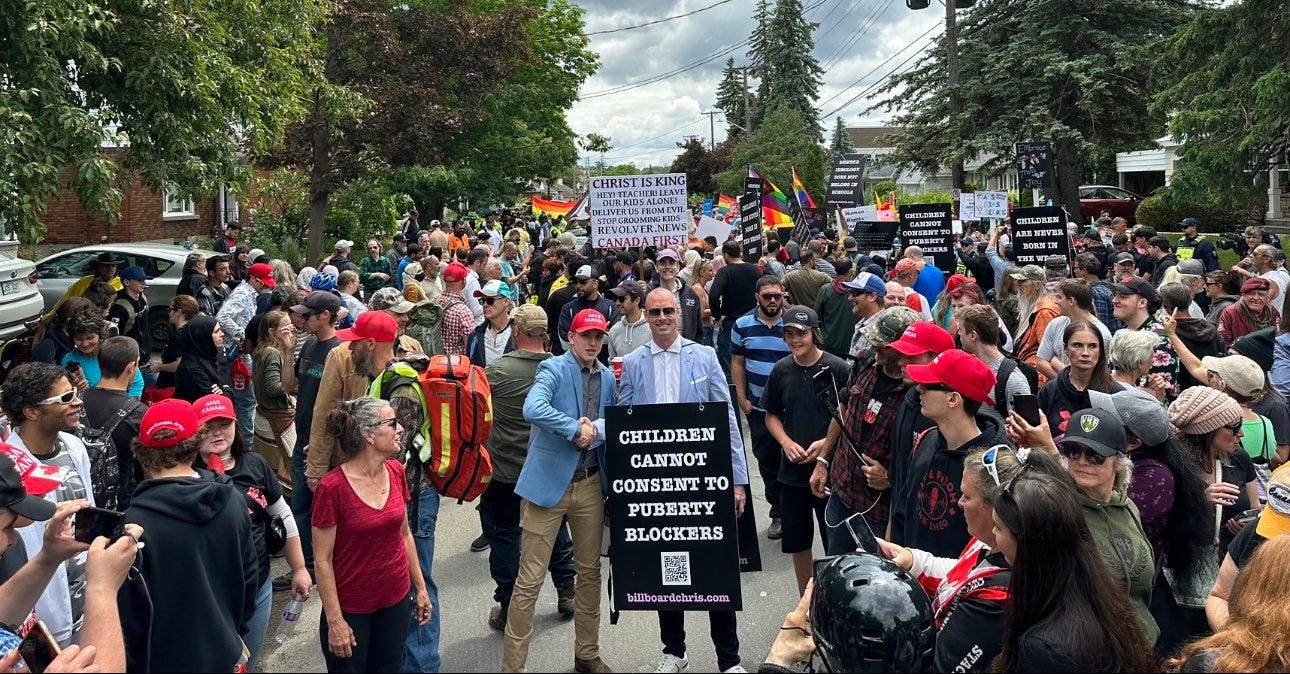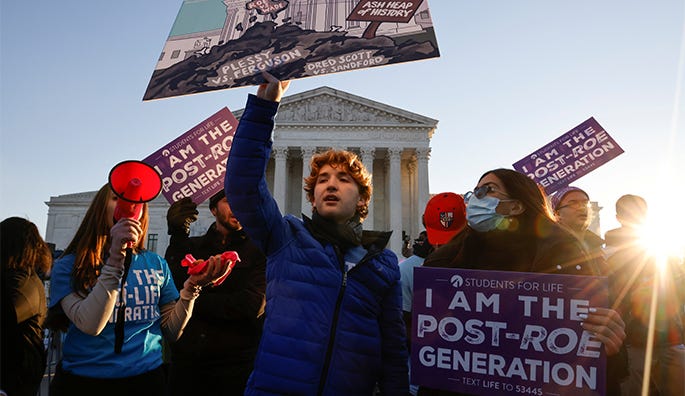Two men adopt a baby and Twitter explodes
A closer look at the intersection of values and norms during today's culture war.
It all started with a tweet
In the ever-evolving landscape of societal norms and values, the recent controversy surrounding a gay couple's adoption of a baby has sparked a heated debate. What was presumably intended to be a heart-warming tweet about adoption quickly escalated into a heated debate about Abortion, Gay Adoption and homophobia.
https://twitter.com/CBSNews/status/1676682362195779584?s=20
The one-minute clip shows a nurse bringing an infant to the male gay couple who react with intense emotion, with one of them swooning over a mood music soundtrack. This seemingly benign tweet was responded to with a torrent of antagonistic replies and comments typical of Twitter, a veritable hot zone of the culture war where no holds are barred.
Followed by a Question
Peter Boghossian, notable colleague of James Lindsay and partner in the Grievance Studies Affair, tweeted:
“It’s unclear why there’s so much vitriol toward this gay couple for adopting a baby. It appears to be coming from the same people who are against abortion. Is this just hatred of gays? What am I missing?”
https://twitter.com/peterboghossian/status/1677094686761074688
This raises a pertinent question: Is the backlash in this case merely a manifestation of homophobia, or is there a deeper, more complex narrative at play? To fully comprehend the dynamics of this issue, we must delve into the tapestry of societal discourse, where threads of family, identity, and individual rights are intricately woven together.
A spill-over of issues
The crux of this debate lies at the intersection of at least two deeply personal and contentious issues: abortion and gay adoption. The former, a topic that has long been a battleground for conservatives and liberals alike, is a matter of life and death, quite literally. The latter, while seemingly less contentious, is no less complex, involving questions of identity, belonging, and the very definition of family.
Conservatives, particularly those of religious persuasion, are often vocally opposed to abortion. Their pro-life position often argues for adoption as a preferable alternative, a concession made to spare the life of the unborn child. However, this is not to say that they regard adoption as equal to a child being raised by its biological parents.
Studies have indeed shown that outcomes for a child are often best when raised by their natural birth parents, for a myriad of reasons, not least of which include a natural biological affinity.
In a paper published in the British Journal of Education, Society and Behavioural Science by Donald Sullins titled Emotional Problems among Children with Same-Sex Parents: Difference by Definition, the abstract states:
“Emotional problems were over twice as prevalent for children with same-sex parents than for children with opposite-sex parents. Risk was elevated in the presence of parent psychological distress, moderated by family instability and unaffected by stigmatization, though these all had significant direct effects on emotional problems. However, biological parentage nullified risk alone and in combination with any iteration of factors. Joint biological parents are associated with the lowest rate of child emotional problems by a factor of 4 relative to same-sex parents, accounting for the bulk of the overall same-sex/opposite-sex difference.”
Adoption, while a noble and often necessary practice, is not without its challenges. Adopted children often grapple with feelings of displacement, even in the most loving and nurturing of homes. The bond formed between a mother and child, from conception through birth, is a profound one. When this bond is severed, the child is thrust into a world of uncertainty, often struggling to find their place in it.
The debate becomes even more complex when we consider the question of who the adoptive parents are. The ideal scenario, according to traditional norms, would be for the child to be raised by a family member, maintaining some semblance of biological continuity. However, in an era where adoption is increasingly commodified, this continuity is often lost, leading to further feelings of displacement and isolation for the child.
The introduction of same-sex couples into this already delicate situation adds another layer of social complexity. While some may argue that a loving home, regardless of the parents' sexual orientation, is all that matters, others, particularly those with traditional or conservative values, may struggle with this notion. Their resistance is not necessarily rooted in homophobia, but rather in a deep-seated belief in the traditional family structure as the ideal environment for raising a child.
Religious bigotry?
Traditional family structures are often advocated by adherents of various religious faiths, including Abrahamic traditions. This extends to other major world religions such as Hinduism, Buddhism, and Sikhism, and numerous indigenous and local faiths as well, where interpretations and cultural practices can pose challenges to acceptance of same-sex unions. For believers navigating faiths that traditionally frown upon same-sex unions, the idea of a child being raised by a same-sex couple may indeed be deeply troubling. This does not make them inherently homophobic, but rather, their faith may present them with a moral conundrum they must grapple with.
Some sections of the Bible can be hard to read charitably.
For example, in Romans I:26-27, it reads:
“Because of this, God gave them over to shameful lusts. Even their women exchanged natural sexual relations for unnatural ones. In the same way the men also abandoned natural relations with women and were inflamed with lust for one another. Men committed shameful acts with other men, and received in themselves the due penalty for their error.”
And in Leviticus 18:22
“‘Do not have sexual relations with a man as one does with a woman; that is detestable.
While there is more context to interpreting these passages than shown here, this ties in with their broader beliefs about the sanctity of family as they define it, which also informs their opposition to abortion.
While extreme displays like the Westboro Baptists' fire-and-brimstone protests might capture headlines, most contemporary people of faith demonstrate more moderation. Nevertheless, for individuals in the gay community and those committed to progressive causes, the reactions from religious groups to issues like gay marriage and adoption can be unsettling.
Beyond Religion
While devoted religionists grapple with allegations of intolerance, questions around same-sex couple adoption are no simple matter for secularists and atheists either. Today, much of this intricacy comes from the rising influence of Queer Theory and its activism. Queer Theory, which challenges and deconstructs traditional norms, seeks to dismantle heteronormative structures, and even the conventional definition of 'family.'
If this were about merely accepting differing sexual behaviors using a live-and-let-live mentality, common ground might be more easily found. However, Queer Theory, historically integral to LGBT activism, has broader ambitions than just reducing stigmatization of the marginalized and advocating for social inclusion. Its academic literature identifies Queer Theory as a force actively seeking to dismantle cisgender, heteronormative structures, and the traditional family itself.
These 'traditional family' ideas, which continue to face critique as exclusionary and outdated, also inform objections to things like gay marriage and abortion, which represents a slippery slope for many.
It’s Such a Queer Theory
Were it merely a matter of a classical live-and-let-live ethos, the dust might settle on differences in sexual practices, but Queer Theory seems has an even more ambitious agenda than simply destigmatizing homosexuality and promoting social inclusion, as it has no limiting principle, and its literature pushes the edges of ethical boundaries and explicitly opposes normal.
In Saint Foucault: Towards a Gay Hagiography, David Halperin defines Queer in a way that underscores this point:
"Queer is by definition whatever is at odds with the normal, the legitimate, the dominant. There is nothing in particular to which it necessarily refers. It is an identity without an essence. 'Queer' then, demarcates not a positivity but a positionality vis-â-vis the normative".
One should note that this definition is cited from a book elevating Michel Foucault to the stature of a Saint. Foucault holds a significant place in both LGBT and Queer activism and academia, and often celebrated for his critical examination of power structures. However, there is also an irony in this; while he is renowned for examining the imbalance in power structures, he seemingly ignores the power dynamics inherent in adult-child relationships, as evidenced by his controversial views on child sexuality and consent laws.
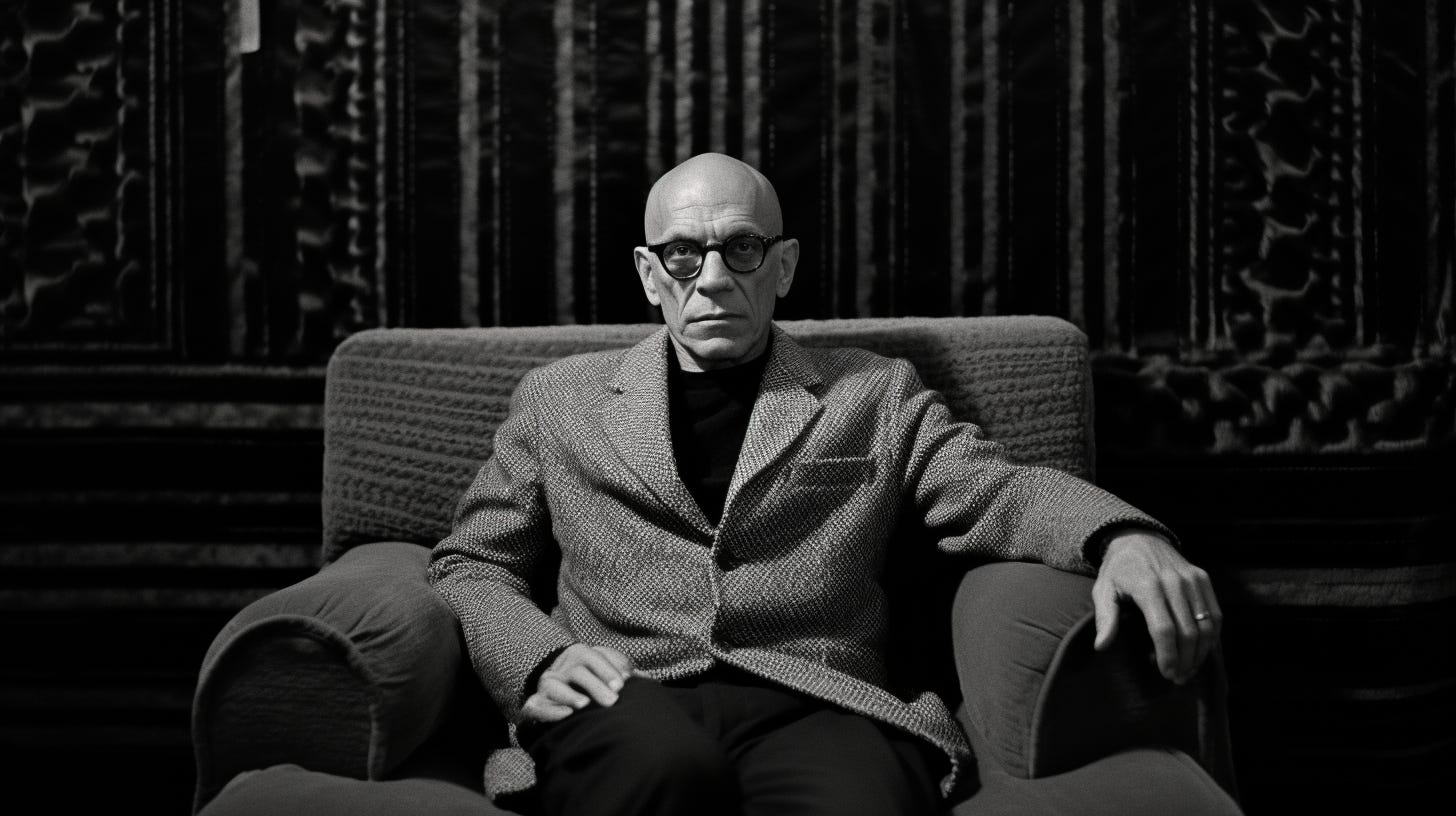
In a 1978 dialogue with Guy Hocquenghem and Jean Danet, Foucault argued that age of consent laws are arbitrary, a stance that potentially opens the door for child exploitation. Furthermore, he advocated for children's autonomy in engaging in sexual relationships, which assumes children possess the same capacity as adults to make informed decisions about their sexual behavior.
“It could be that the child, with his own sexuality, may have desired that adult, he may even have consented, he may even have made the first moves. We may even agree that it was he who seduced the adult…”
-Michel Foucault
Source: Sexuality, Morality, and the Law
Given Foucault's alleged personal involvement with child prostitution with young boys, his motivations behind advocating for such radical changes in child sex laws raise serious ethical concerns. It becomes problematic to refer to Foucault as a "Saint," while vilifying those, including the religious right, whose stance is often rooted in a desire to protect children on the basis of religious beliefs. It also calls into question whether Foucault is celebrated religiously as a saint despite these dark elucidations or rather, because of them.
Guy Sorman accuses Michel Foucault of abusing boys in Tunisia
Thinking Sex
While one might disdain the suggestion that Foucault’s questionable stance on adult-child sexual relations is representative of homosexuality, Queer Theory at least has teased at child sexual relations since its genesis, including in Gayle Rubin’s early influential work, Thinking Sex, where she not only invokes the topic quite casually, but claims that child porn laws are ill-conceived and sides with NAMBLA in opposing them:
“The laws produced by the child porn panic are ill-conceived and misdirected. They represent far reaching alterations in the regulation of sexual behaviour and abrogate important sexual civil liberties. But hardly anyone noticed as they swept through Congress and state legislatures. With the exception of the North American Man/Boy Love Association and American Civil Liberties Union, no one raised a peep of protest.”
It's common today to label those who oppose same-sex adoption as homophobic, bigoted, or overly religious. However, when a book like "Saint Foucault" elevates Michel Foucault, a central figure in the development of Queer Theory, to the status of a religious figure, it's understandable that some might view Queer Theory as a replacement theology, and a dangerous one at that.
And Saint Foucault is not the only academic literature that elevates Queer Theory to the level of the sacred. In his paper, What Is Queer? Theology after Identity, Gerard Loughlin argues:
“As such, queer is a movement, a deployment, which unsettles all attempts to fix theology—and God—within the contingent lineaments of heteropatriarchy. Queer is what all theology should be.”’
There are other examples of how Queer Theory has been deployed, including supporting adult-child relationships under the veil of children’s rights advocacy, but this article won't delve into those in detail. Rubin and Foucault are cited as examples for illustration mainly due to their prominence in the movement. Suffice it to say, these concerns intensify the urgency of assessing the possibly profound impacts and consequences of such theorizations.
Push-backs abound
While it is not a pre-requisite for gay people to endorse Queer Theory, its principles have become such a staple of contemporary discourse to the degree that it is often taken for granted, with opponents often being labeled “alt-right.”
It’s also worth pointing out that most people don’t expect pedophilia to be the norm in Gay and Queer discourses, and indeed there is an effort in that community to recognize its connections to Queer Theory and distance themselves from it.
Indeed, people have recently been informing themselves of the source material and changing course. Some of the recent push-back is in the formation of groups like Gays Against Groomers and increasing social presence from accounts like LGB Alliance who actively distance themselves from the recent uptick in Queer activism. Other alliances are forming with groups like Moms For Liberty joining forces with Billboard Chris.
So it is becoming clear that, while proponents of Queer Theory are losing ground with the habitual allegations of homophobia and bigotry that might have once been more appropriate and applicable, the pushback does still include the same religious conservatives that where there before Queer Theory, Foucault, Halperin and Rubin, and unfortunately that probably includes people who actually hate gays for being gay, but the times, they are a-changing and most of the current crop of so-called conservatives prefer to identify as classically liberal.
Jesus revolution, or revolt?
Could it be that we are facing a roll-back of the hand-waving dismissal of the religious right when it comes to gay issues as well as efforts to put Queer Theory back into Pandora’s box? Or could it be that there are indeed some opportunistic bigots in the fray, going along for the ride? My guess is that it’s a mixture of both, but overwhelmingly the former.
Justified concerns?
The repeal of Roe vs. Wade in the Supreme Court decision of Dobbs v. Jackson Women's Health Organization, has sparked concerns within the LGBTQ+ community. The case, which overturned federal constitutional abortion protections, has raised questions about the potential impact on other rights that share the same constitutional basis. These rights, including same-sex sexual intimacy and marriage, are protected under the Fourteenth Amendment’s Due Process Clause, which safeguards the right to “liberty” and privacy.
Justice Thomas, in his concurrence, suggested that the Court should reconsider all of its substantive due process precedents. While the majority opinion stated that the decision should not cast doubt on precedents unrelated to abortion, the willingness to overturn Roe, a significant precedent, has caused alarm. This concern is particularly prevalent among communities whose rights are based on the same legal principles.
So what?
But what does all of this have to do with a couple of gay dudes adopting a baby?
Well, nothing. And everything. Fact-checks of this story take the edge off of the idea that the baby was being abandoned, and that it isn’t receiving the full care that it deserves. I’ll even go out on a (not much of a) limb and say that these gay men probably have no nefarious intentions toward the child and no plans to take it to the Blue Oyster Bar any time soon.
A fighting chance to have a fighting chance
What we need to realize right now is that we are at a turning point in a very heated culture war where many things we have taken for granted are getting a do-over, or are at least becoming subject to a second look. That includes 14th amendment protections for various gay rights, which justifiably makes gay people concerned. What future changes might look like is hard to tell depending on who drives the bus going forward, but let’s not forget there are systems in place to keep democracy intact and constitutional rights.
People like James Lindsay, mentioned earlier, while being often maligned with negative labels, like “alt-right”, “fascist”, “reactionary” and others pejoratives has been sounding the clarion call for push-back against “woke” in all forms, of which Queer Theory is a part. However, he is also one of the more prominent voices warning about the hazards of reactionary and anti-liberal responses, including from Christian Nationalists. He speaks at length about the dangers of letting push-back become illiberal, and his message is worth heeding, lest things devolve into instability.
The tensions of recent years which have included elevated concerns about free speech and social conformity, especially on social media has led to the frustration of voices not being heard. This has legitimate potential to spill over into a bad place if the social pressure cooker isn’t properly decompressed.
While it can be disturbing to see things heat up on Twitter, let’s not forget that it is one of the few remaining social media platforms that hasn’t suppressed more nuanced and balanced conversations on these difficult topics, the least of which include “woke” and an increasing overreach of governments on public liberty.
It could be that the cauldron bubbling over in bird-land is a much-needed pressure valve for sentiments that might otherwise become explosive. Imagine the silent resentment that could build up if people didn’t have at least that one outlet?
Is this a Christo-fascist take-over of the alt-right come to take away your rights? Not really, but there is a real chance that things could change significantly in upcoming years. It’s crucial for us to remember that for all our desires to speak out against things wrong in the world, we don’t lose sight of our humanity.
As we navigate this complex time, we must remember the words of Aleksandr Solzhenitsyn:
The line between good and evil runs not through states, nor between classes, nor between political parties either — but right through every human heart.
Finally, I’ll cite Lindsay once again, with a centering reminder: Stability Prevents Revolutions.



